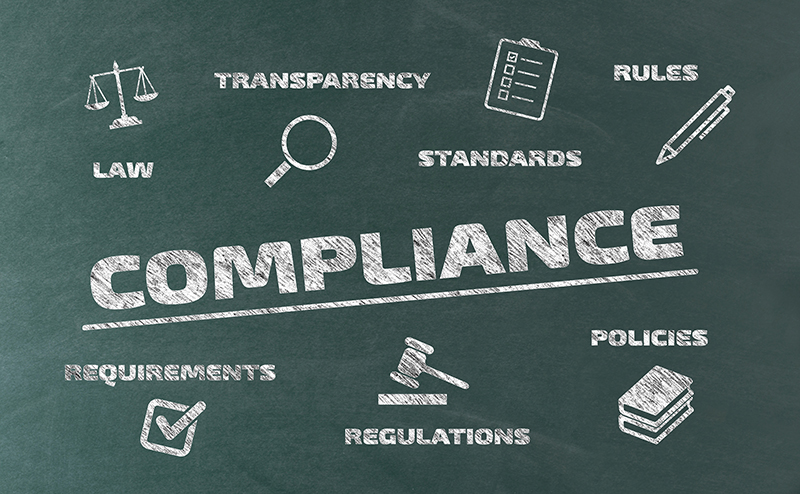[vc_row][vc_column][vc_column_text]Compliance Management
Compliance Management refers to managerial practices where all dealings and activities are monitored carefully by companies and organizations. This is done to ensure that they meet a set of requirements, codes, or standards. Failure to meet those imposed standards is called compliance failure. Compliance failure can result in severe damage to the company’s goodwill and reputation. Compliance failure in certain severe cases can result in penalties and even criminal charges.
Functions of Compliance Management
Organizations usually designate a compliance manager to oversee compliance-related activities in an organization. In some cases, organizations can choose to hand over control of compliance-related activities to HR compliance services, third-party service parties that oversee compliance-related activities.
Given that many organizations will look to focus on growth and will be time-bound in the case of results, HR compliance services can shoulder the burden of these activities as well as offer tangible solutions to compliance issues.
Some of the activities that are involved in compliance management include:
- Training and development of employees on compliance and compliance-related issues.
- To monitor and report compliance-related issues and failures.
- Collaborating with other department heads and managers to rectify issues.
- Conduct periodic yet continuous audits to see if activities are compliant.
- Research and develop contingencies for upcoming compliance-related issues.
Organizations have different compliances depending on the kind of industry or field that they are involved in. Therefore, managers and HR compliance services must be aware of the various agreements about specific organizations and commerce as well.
Compliance in India
Compliance is also unique to each country; India is no exception. To continue to stay compliant, managers or compliance experts must be aware of the significant laws and acts that are responsible for the functioning of workplaces in India. Legal compliance refers to processes where a set of rules and regulations of an organization that governs their business and financial activities.
Compliance is observed in the process of payroll tax compliance, a related area. Payroll taxes are those taxes imposed on both employees and employers by governing authorities. Payroll tax compliance audit is the process by which managers or third-party service providers ensure that payroll taxes are paid in a timely and accurate way.
The significant acts that govern both payroll and legal compliance include:
- Minimum Wages Act, 1948, which delineates the minimum wages that are to be paid to skilled as well as unskilled workers as well, an act that varies from state to state.
- (ESI Act) Employees’ State Insurance Act, 1948, responsible for funding social security and health insurance schemes for employees.
- EPFO (Employee Provident Fund Organization), 1952, where both employee and employer deposit a certain percentage of the employee’s salary, the whole of which is given to the employee at the time of retirement.
- Payment of the Gratuity Act, 1972 which enables employees to claim a certain amount of money as a retirement benefit.
- Contract Labour Act, 1970, which standardizes the conditions of contract employment in organizations.
Advantages of Third-Party Compliance
- Reduced liability on the organization as the onus falls on third party HR compliance services.
- Costs, time, and effort are reduced.
- Organizations can gain access to experts who will be well versed in compliance in certain field-specific agreements.
- Organizations can spend more time and resources on their growth.
- Third-party vendors can research and assess any potential threats to compliance, which will help organizations come up with contingency plans for those issues in the future.
Third-party vendors can come up with unique solutions to compliance issues.[/vc_column_text][/vc_column][/vc_row]








